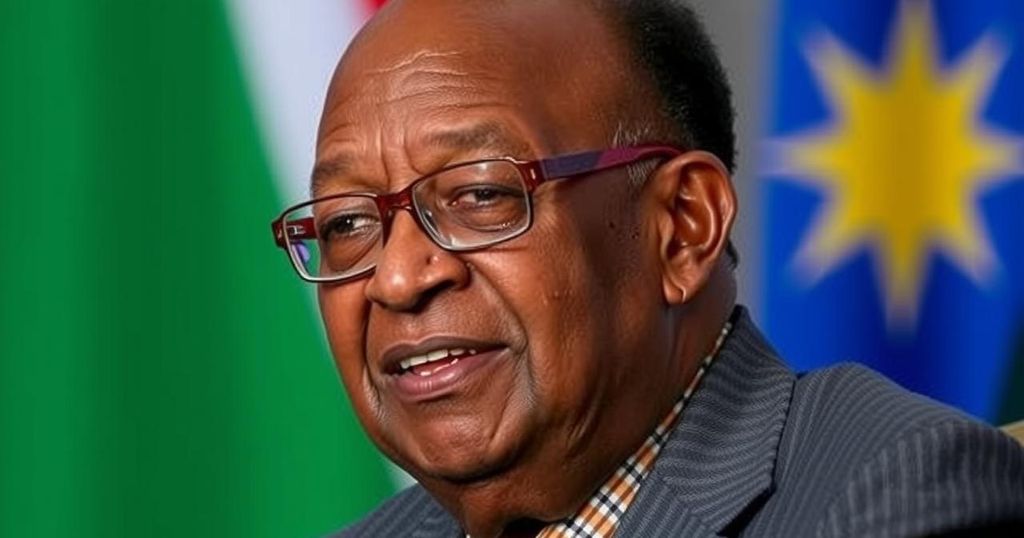Botswana President Concedes Defeat, Marking End of Era for Ruling Party
Botswana President Mokgweetsi Masisi conceded defeat in the general elections, ending the Botswana Democratic Party’s 58 years in power. The opposition party, Umbrella for Democratic Change, emerged as a frontrunner with its presidential candidate Duma Boko positioned to take over leadership, marking a significant political transition in the country.
In a historic shift for Botswana, President Mokgweetsi Masisi officially conceded defeat following the recent general elections, marking an end to the Botswana Democratic Party’s (BDP) unprecedented 58-year reign since the country gained independence from Britain in 1966. The concession, made prior to the announcement of the final results, revealed that the BDP was trailing significantly behind the leading opposition party, the Umbrella for Democratic Change (UDC), headed by Duma Boko. Amidst the emergence of these election results, President Masisi communicated directly with Mr. Boko to convey his acknowledgment of the electoral outcome. The election day unfolded with significant participation as citizens cast their votes, contemplating whether to maintain their support for one of Africa’s longest-governing parties. This electoral transition has been characterized as a significant turning point in the nation’s political landscape, especially within a context celebrated for its democratic norms and governance stability. The UDC, buoyed by the results, is poised to usher in new leadership that may reshape Botswana’s future, particularly in its substantial diamond mining industry that has historically bolstered the economy.
Botswana has been a model of democratic governance in Africa since its independence, with the Botswana Democratic Party serving as a stalwart political force. However, the recent elections have revealed a growing desire for change among the electorate. The rise of the Umbrella for Democratic Change (UDC) signals shifting political sentiments, as citizens seek alternatives to the prolonged rule of the BDP. Understanding this election’s backdrop involves recognizing Botswana’s political history, which has witnessed an unbroken chain of leadership by the BDP since its founding, raising questions about the effectiveness and adaptability of its policies in the face of modern societal demands.
In conclusion, President Mokgweetsi Masisi’s concession signifies a monumental moment in Botswana’s history, heralding the potential for a new political era. The significant defeat experienced by the Botswana Democratic Party underscores a collective yearning among voters for governance that reflects contemporary aspirations. The opposition’s success in these elections may pave the way for transformative initiatives, particularly in crucial sectors like mining and broader democratic engagement.
Original Source: apnews.com




Post Comment